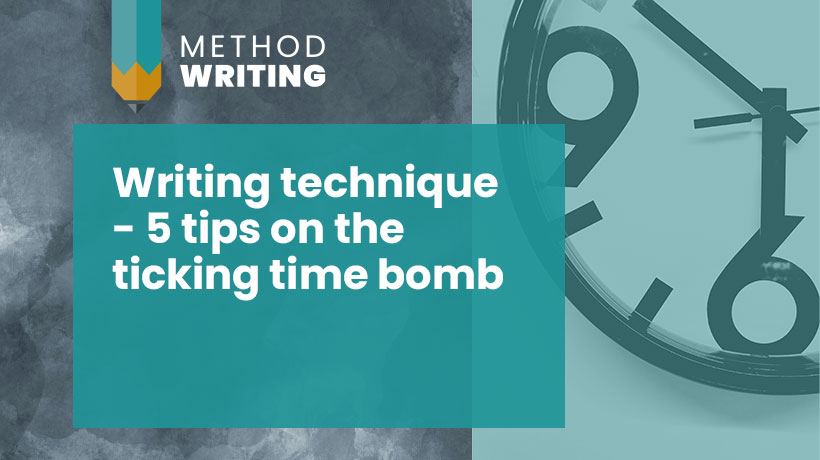How to develop your writing voice
Your unique writing voice is your best asset as an author, but how do you develop it? It’s widely agreed that a vivid, compelling writing voice sets you apart. Publishers and creative writing tutors say a fresh voice makes them sit up. They’re far more likely to read on.
But a vivid writing voice is difficult to pin down. I read a lot of fiction in progress, and you know it when you hear it. It’s a mix of writing style and music, sound and rhythm, and it’s hard to teach. For most writers, it just comes naturally. For other writers, it develops over time. Many use different writing voices at different times.
If you want to develop your writing voice (or voices) further, read on.
1. Talk about powerful, positive experiences
Your writing voice is a more heightened version of your speaking voice. It’s the voice you use when you’re happy, excited, angry, with slightly more adrenaline in your body.
When you’re excited, your thought processes are more energetic. It’s easier for unusual and less filtered phrases to bubble up. You’re less likely to censor them.
So, think of times when you’ve felt happy, excited or mad! Or something you’re really looking forward to. Try to put yourself in that place. Imagine yourself talking about this to a friend. Then…
2. Record yourself speaking
This creates some objective distance, a sense of defamiliarisation. It makes it easier to listen out for tics and phrases, without being overly attuned to the meaning.
To do this, use a recording app such as Dictadroid on your mobile phone, or the voice recorder on your computer. Try speaking about something you know really well. Perhaps a hobby, job, or description of a place.
Then listen back. Ideally, get someone else to listen, too. Do you have a short, staccato speaking style, using short words? Do you use longer, higher register words? Do you speak in fragments and phrases, rather than sentences? Do you make up entirely new words? What filler words (um, ah, eh) do you use?
Does anything surprise you about your voice and language?
3. Freewrite about powerful experiences
Try 2 above, this time writing, rather than speaking. It’s easy to get into a lather by writing about something controversial or infuriating. This can help raise your adrenaline and fuel sharper, energetic writing.
But be careful. Some topics are strong meat and hard to step back from. And the point here isn’t to upset you. It’s to get some writing out, and then look back at it objectively. So don’t choose something overwhelming. Then mark up what you find.
Things to look out for: repetition, anaphora, plosives, emphasises, register, vocabulary, sounds.
Does your writing voice relish sounds and rhythms?
4. Try out writing personas
Some writers are chameleons, able to embrace and get infected by different writing styles. You might be one of those authors who reads a fast-paced thriller, and finds themselves writing in a pacy thriller style. Or reading a languorous romance and finding yourself deep in lush prose.
If that’s you, great! Embrace it, practice it, and use it. It means you’ll be good at writing different characters, and they won’t all sound the same. It also means you can turn your hand to different genres.
If you’re not a natural voice chameleon, you can still develop your writing range. Use deliberate practice, pick a writer with a distinctive style, analyse what’s unusual and write some sentences using those techniques.
This will help to make you more aware of voice and expand your possibilities.
5. Listen to others
It’s possible you haven’t found your voice yet for many reasons: because you’re young, or haven’t written much, or haven’t encountered a lot of different voices. But if you’re writing fiction or scripts, you’ll want to hear plenty of different voices, to help make your characters as distinct as possible.
If that’s you, get out more, and take your notebook. Distinctive and surprising voices are all around! Or listen to talk radio stations you don’t normally hear. Talk radio is natural speech with a relatively high energy. So it’s helpful for picking up voices in age groups and communities you don’t usually meet.
Rather than listening to loads of voices, it can be more effective to pick out just one, and work out what makes it tick. This will help you create a more congruent character.
What unusual words does the speaker use? What amplifiers? Do they use ‘real’ or ‘really’? Or ‘fair’, as in ‘fair guid’ in the Scots language? Do they use high or low register? Unfamiliar metaphors? What words do they use to agree and disagree?
What can you use in your writing?
6. Nabokov’s Favourite Word is Mauve
Ben Blatt’s book Nabokov’s Favourite Word is Mauve has a fascinating list of writers and their unique voiceprints.
He distinguishes cinnamon words – unusual words less used by other writers. In Nabokov’s case, it’s mauve, banal, pun.
And then there are nod words. These are common words which the writer uses more than others. For example, Agatha Christie uses yes, quite, really.
It’s easy to find your own voice print in a piece of writing. Go to wordart.com and insert your text. It will create a word cloud showing your most salient words. The image in this blog was made from these words. Have fun!


